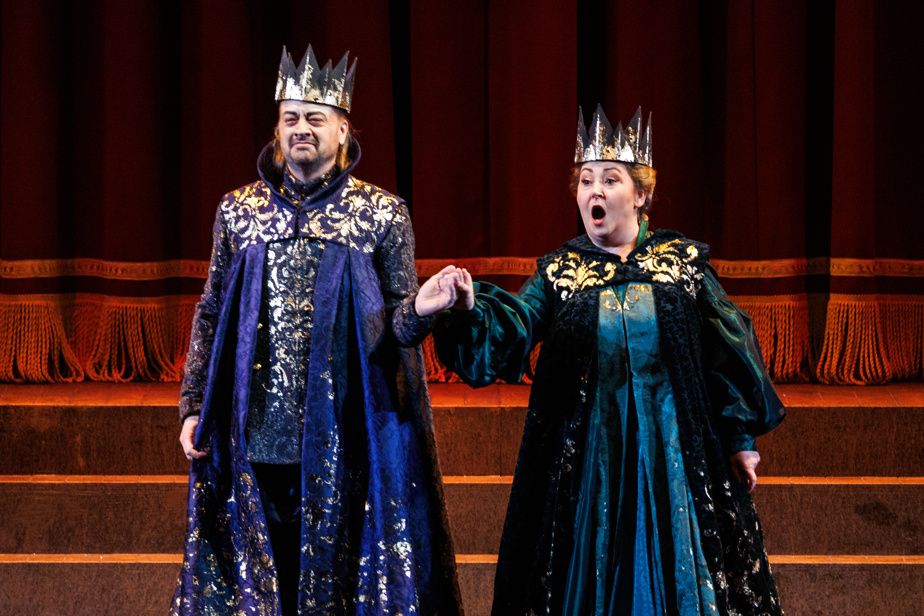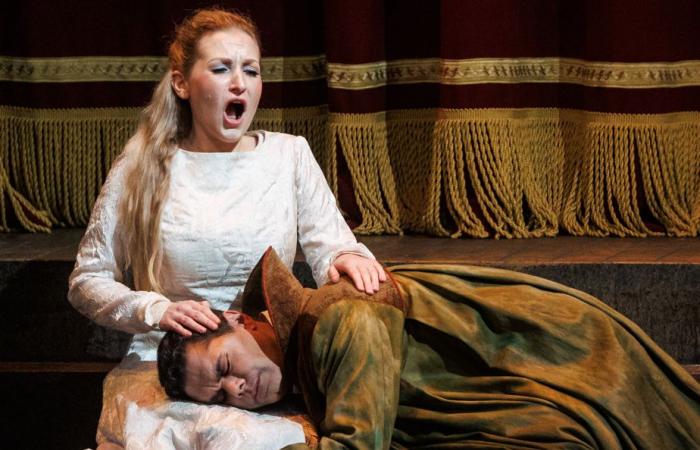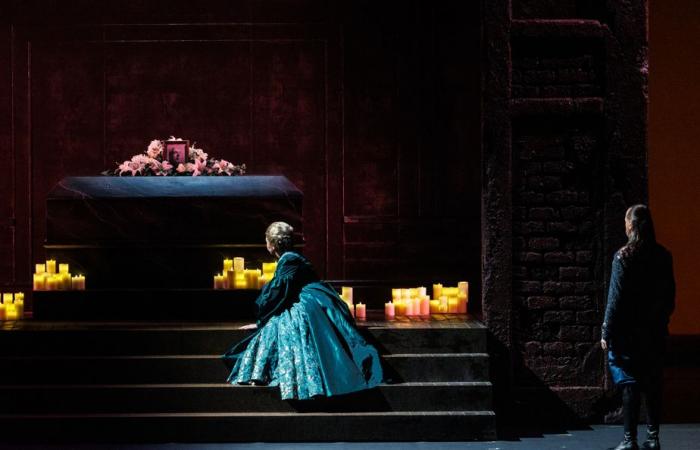What a pleasure to hear something other than the ordinary at the opera Traviata et Bohemiawhich certainly has the advantage of making the boxes purr, but deprives us of the pleasure of discovery! Hamletby Ambroise Thomas, which played Saturday evening at the Opéra de Montréal until November 24, is a show that we will not want to miss, despite the shortcomings of the title role.
Posted yesterday at 7:51 p.m.
The composer Emmanuel Chabrier once said: “I only know good and bad music and that of Ambroise Thomas”. Hamlet Fortunately most often leans on the first side, despite a certain academicism and a few more conventional moments. The two arias from Hamlet and the big scene from Ophelia have long been proven pieces of bravura. The rest is just waiting to be discovered, the supporters of Gounod’s music – we are among them – having ample sustenance. Above all, no one can deny the dramatic gifts of Thomas, whose music skilfully underlines the singularity of each situation.
Popular in the years following its creation (in 1868), the work gradually fell into relative oblivion in the 20th century.e century, until the 1980s, when it re-emerged on certain stages, carried by great baritones who found it an excellent vehicle for their talent. Unless I’m mistaken, it has not been given in Montreal since 1928 (at the Monument-National).
PHOTO DENIS GERMAIN, SPECIAL COLLABORATION
The settings, which represent more of an abandoned warehouse than a castle
The Montreal Opera went with an in-house production whose sets (Frédérick Ouellet) impress more by their massive side than by their intrinsic beauty. Huge sections of rust-colored wall, evoking some disused warehouse, move during the evening, revealing sometimes a theater, sometimes a bedroom or some alcove. Associating industrial decay and the decomposition of power at the court of Elsinore, okay, but it remains a little abstract without appropriate costumes or accessories.
Read “In the settings ofHamlet »
The direction by Alain Gauthier, a regular on this stage, has the advantage of being well paced. And the acting, a rare occurrence, is uniformly subtle and embodied.
Where things go less is in the role of Hamlet, which baritone Elliot Madore took on for the very first time. Despite an undeniable stage dejection, we are surprised to hear from this singer with a very well-stocked CV such a short voice of treble and bass, with a somewhat crude timbre, without much brilliance or projection.
French is also not very well served by the two main roles. Despite their surname, he and co-star Sarah Dufresne are English-speaking Ontarians, and it shows, especially for Madore. No, we do not accentuate silent “e”s in French. And an “e” is not an “eu”. Without being dramatic, it was out of place in a French-speaking cultural capital like Montreal.
However, it is the only element (with rare harshness in the high notes) to be put down to this former member of the Atelier lyrique who also sang Ophélie for the first time and is distinguished by a voice of youthful freshness. The demanding final scene did not faze him.

PHOTO DENIS GERMAIN, SPECIAL COLLABORATION
Nathan Berg and Karine Deshayes, who play the roles of Claudius and Gertrude
Our preference, however, goes to Karine Deshayes, a well-known French mezzo-soprano who made her debut at the Montreal Opera as Gertrude (Hamlet’s mother). This is a well-placed voice, powerful as well as warm. A real delight. Bass-baritone Nathan Berg (Saskatchewan), who is heard much more often in 18th century musice century, also did well in Claudius.
Even if he sings little, tenor Antoine Bélanger (Laërtes) made a better impression than in The wayward onethe French repertoire suits him quite well, despite some hesitant high notes.
For the smaller roles, we retain the Horatio of bass-baritone Alexandre Sylvestre, with impeccable French and vocal placement, and the striking Specter of bass Alain Coulombe.
At the head of the Orchester Métropolitain, Jacques Lacombe delivers clear and expressive accompaniment. We expected no less from this specialist in French opera.
The next performances will be given on November 19 and 21, at 7:30 p.m., and November 24, at 2 p.m.








